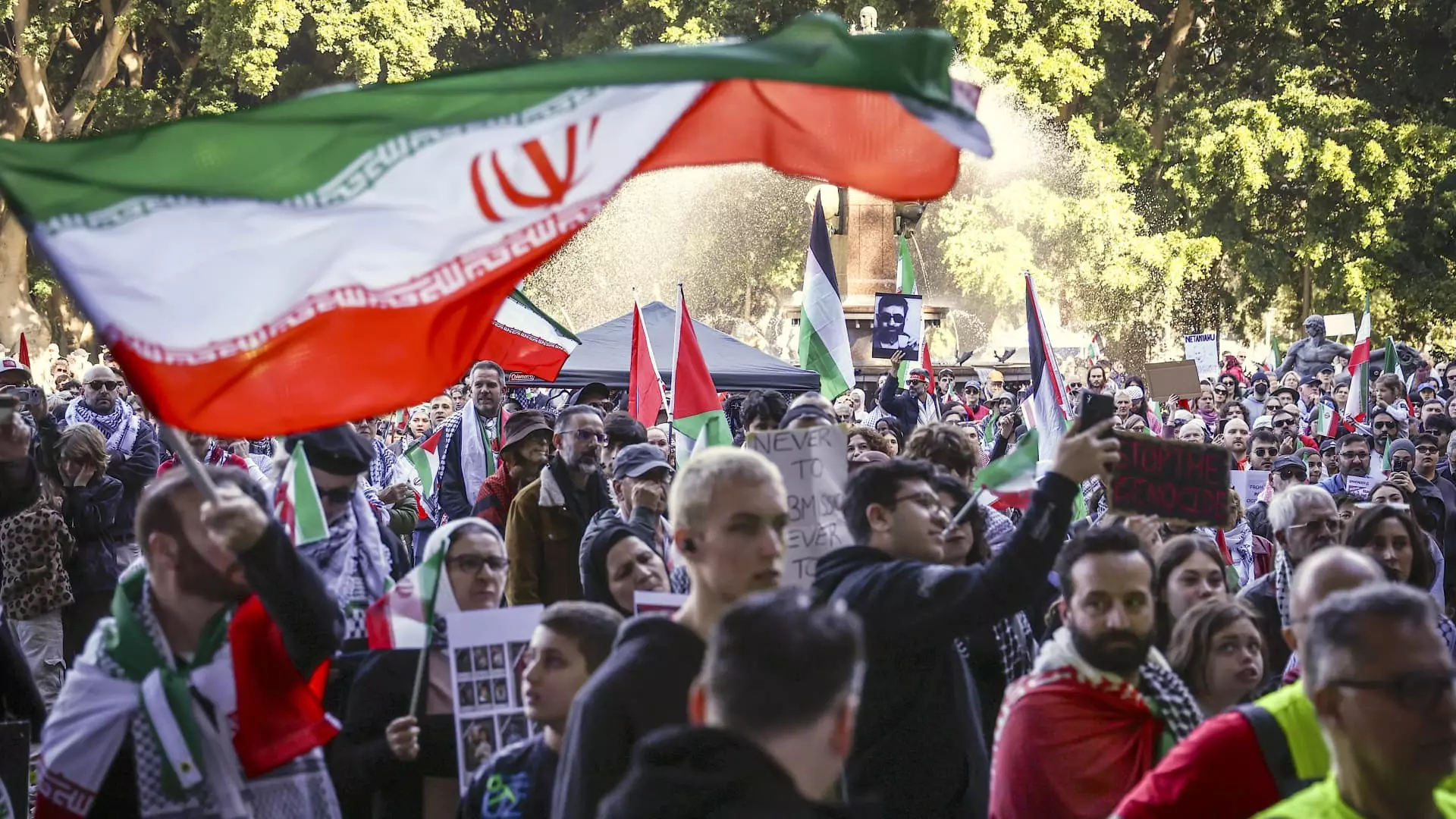The recent intensification of hostilities between Iran and Israel, coupled with the involvement of the United States, marks a perilous juncture in Middle Eastern geopolitics. Iran’s Foreign Minister Abbas Araghchi has articulated a stance that reflects both anger and a sense of urgency, stating that Tehran reserves the right to defend its sovereignty in the wake of what he has termed “outrageous” U.S. military actions against its nuclear enrichment sites. This rhetoric encapsulates a deep-rooted fear of existential threats facing Iran, particularly given the recent strikes on critical nuclear facilities in Fordo, Natanz, and Isfahan.
As the U.S. openly engages in military action against Iran, one must question the broader implications of such a strategy. The U.S. has historically positioned itself as a deterrent against nuclear proliferation, yet this recent intervention threatens to further destabilize an already volatile region. The notion of national sovereignty and the right to self-defense cannot simply be dismissed; they are legitimate assertions made by a nation grappling with the specters of foreign aggression. The Iranian population, already facing incredible hardships, now finds itself ensnared in a conflict that could have far-reaching consequences.
Impact on Diplomacy
Araghchi’s comments highlight the alarming erosion of diplomatic efforts that were underway prior to the military escalation. His assertion that U.S. actions have thwarted potential negotiations indicates a fundamental breakdown in dialogue aimed at resolving long-standing tensions. The irony cannot be lost: while diplomatic avenues are fraught with difficulty, the focus has shifted from collaboration and negotiation to aggression and retaliation. This mode of engaging with Iran, particularly by an administration that touted its commitment to peace efforts, poses severe risks to global stability.
By resorting to military solutions, the U.S. may inadvertently further entrench Iran’s defiance. The idea that military superiority alone can dictate the terms of engagement is a dangerous misconception. The international community, particularly organizations like the United Nations, ought to reflect on this momentum toward conflict and question how genuine the motives for peace truly are. Araghchi’s assertion that “every member of the United Nations must be alarmed” encapsulates a universal concern regarding not just regional, but global stability.
Domestic Implications and Suffering
The human cost of this conflict is striking, with reports indicating a staggering number of casualties in Iran since the escalation began. The Iranian health ministry’s claim of over 430 fatalities serves as grim evidence of the toll that warfare exacts on ordinary citizens. In stark contrast, the reported twenty-four civilian deaths in Israel due to Iranian retaliatory strikes provides a sobering reminder that wars disproportionately impact the vulnerable — the very populations that policymakers often overlook.
President Trump’s declaration of the U.S. attacks as a “spectacular military success” raises serious ethical questions about the nature of warfare and its glorification. The implications of such statements can embolden aggressive stances and further alienate populations. While military strikes may appease certain nationalist sentiments, they often do so at the cost of long-term, sustainable solutions. The human toll cannot merely be quantified; it carries implications that resonate throughout societies and cultures.
The Danger of Oversimplification
In navigating the complexities of this conflict, one must avoid oversimplified narratives that cast nations solely as aggressors or victims. Such a dichotomy fosters misunderstanding and a lack of empathy, essential components in resolving conflict. The path forward lies not in exacerbating hostilities but in fostering dialogue that acknowledges grievances and aims for a multifaceted understanding of the challenges at hand.
Iran and Israel’s unfolding conflict, intertwined with American involvement, underscores the urgent need for a recalibration of foreign policy that prioritizes diplomacy over warfare. Nations in the region—Saudi Arabia, Iraq, Oman, and Qatar—have already expressed their concern about this escalation, signaling a collective unwillingness to accept a future shaped by violence and renewed instability.
With leaders like U.S. President Trump and Israeli Prime Minister Netanyahu rallying in favor of military interventions, the voices calling for restraint are crucial to the discourse. There is an opportunity for both Iranian and Israeli policymakers to acknowledge their shared humanity, rather than acquiescing to the temptation of war that history has taught us leads only to tragedy.


Leave a Reply